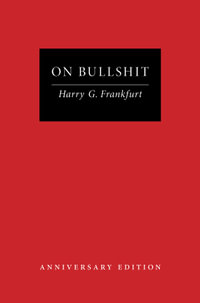How could ecological thinking animate an epistemology capable of addressing feminist, multicultural, and other post-colonial concerns? Starting from an epistemological approach implicit in Rachel Carson's scientific practice, Lorraine Code elaborates the creative, restructuring resources of ecology for a theory of knowledge. She critiques the instrumental rationality, abstract individualism, and exploitation of people and places that western epistemologies of mastery have legitimated, to propose a politics of epistemic location, sensitive to the interplay of particularity and diversity, and focused on responsible epistemic practice.
Drawing on ecological theory and practice, on naturalized epistemology, and on feminist and post-colonial theories, Code analyzes extended examples from developmental psychology, and from two "natural" institutions of knowledge production--medicine and law. These institutions lend themselves well to a reconfigured naturalism. They are, in practice, empirically-scientifically informed, specifically situated, and locally interpretive. With human subjects as their "objects" of knowledge, they invoke the responsibility requirements central to Code's larger project.
This book discusses a wide range of literature in philosophy, social science, and ethico-political thought. Highly innovative, it will generate productive conversations in feminist theory, and in the ethics and politics of knowledge more broadly conceived.
Industry Reviews
"Professor Code provides a rich and sensitive epistemology, an erudite yet eminently readable account of how we know and ought to behave. Her insights, arguments, and examples break new ground in helping us understand the dangers of autonomy, the role of advocacy, and the wisdom of ecological thinking. Anyone in ethics, epistemology, or feminist philosophy must read her book."--Kristin Shrader-Frechette, University of Notre Dame
"This new, major work by Lorraine Code develops the idea of 'ecological thinking' as an alternative, and antidote, to epistemic monolingualism. Code persuasively shows how Western epistemology is analogous to enforced single-crop agriculture that chokes native species and destroys variety. By combining epistemology with an ecological approach, Code brilliantly creates a new model for epistemic pluralism." --Linda Martín Alcoff, Syracuse University
"Philosophical reflections on knowledge typically look at highly idealized situations, where generic, isolated knowers can narrowly focus inquiry within well-defined boundaries. Lorraine Code returns epistemology to the messier circumstances in which knowledge claims are typically made and contested. When natural complexity cannot be easily circumscribed, power and social hierarchy affect knowers' credibility or access, and entrenched social imaginaries
constrain the envisioned possibilities, different models of knowledge and justification are called for. Code's call for ecological thinking is a challenging new conception of what it would mean to naturalize
epistemology."--Joseph Rouse, Wesleyan University
"Ecological Thinking provides a powerful and persuasive epistemological model for responsible knowing which exemplifies the complex intersections between knowledge, subjectivity, politics, ethics, science, citizenship, and agency. Code demonstrates that historically, demographically, and geographically located analyses of knowledge production and distribution will generate more responsible knowing practices. Just as Quine's epistemological naturalism
revolutionalized epistemology in the latter half of the twentieth century, Code's ecological naturalism will transform epistemological theorizing in the twenty-first century."--Nancy Tuana, Penn State University
"Code's book is important and timely, marshalling a wide variety of arguments in support of the necessarily messy and complex effects of philosophical holism and naturalism as applied to ecological studies, broadly construed.... The arguments she offers are complex and rise to the challenge presented to any philosopher working to make intellectual analysis relevant to social policy in the contemporary world."--Sharon Clough, Notre Dame Philosophical
Reviews
"Professor Code provides a rich and sensitive epistemology, an erudite yet eminently readable account of how we know and ought to behave. Her insights, arguments, and examples break new ground in helping us understand the dangers of autonomy, the role of advocacy, and the wisdom of ecological thinking. Anyone in ethics, epistemology, or feminist philosophy must read her book."--Kristin Shrader-Frechette, University of Notre Dame
"This new, major work by Lorraine Code develops the idea of 'ecological thinking' as an alternative, and antidote, to epistemic monolingualism. Code persuasively shows how Western epistemology is analogous to enforced single-crop agriculture that chokes native species and destroys variety. By combining epistemology with an ecological approach, Code brilliantly creates a new model for epistemic pluralism." --Linda Martín Alcoff, Syracuse University
"Philosophical reflections on knowledge typically look at highly idealized situations, where generic, isolated knowers can narrowly focus inquiry within well-defined boundaries. Lorraine Code returns epistemology to the messier circumstances in which knowledge claims are typically made and contested. When natural complexity cannot be easily circumscribed, power and social hierarchy affect knowers' credibility or access, and entrenched social imaginaries
constrain the envisioned possibilities, different models of knowledge and justification are called for. Code's call for ecological thinking is a challenging new conception of what it would mean to naturalize
epistemology."--Joseph Rouse, Wesleyan University
"Ecological Thinking provides a powerful and persuasive epistemological model for responsible knowing which exemplifies the complex intersections between knowledge, subjectivity, politics, ethics, science, citizenship, and agency. Code demonstrates that historically, demographically, and geographically located analyses of knowledge production and distribution will generate more responsible knowing practices. Just as Quine's epistemological naturalism
revolutionalized epistemology in the latter half of the twentieth century, Code's ecological naturalism will transform epistemological theorizing in the twenty-first century."--Nancy Tuana, Penn State University
"Code's book is important and timely, marshalling a wide variety of arguments in support of the necessarily messy and complex effects of philosophical holism and naturalism as applied to ecological studies, broadly construed.... The arguments she offers are complex and rise to the challenge presented to any philosopher working to make intellectual analysis relevant to social policy in the contemporary world."--Sharon Clough, Notre Dame Philosophical
Reviews

























